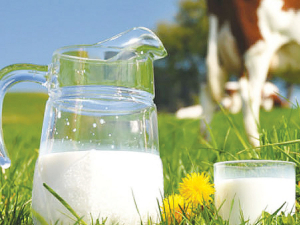Fonterra’s $3.2b capital return to farmers set to boost rural incomes and NZ economy
According to ASB, Fonterra's plan to sell it's Anchor and Mainlands brands could inject $4.5 billion in additional spending into the economy.
 A recent report from ASB claims that, unlike in 2014, troubles on the Ukraine-Russia border aren't likely to cause a drop in dairy prices.
A recent report from ASB claims that, unlike in 2014, troubles on the Ukraine-Russia border aren't likely to cause a drop in dairy prices.
ASB says that, amidst the possibility of an incursion into Ukraine by Russia, it is unlikely the dairy industry will see a repeat of 2014 when conflict between the two countries led to a crash in dairy prices.
“Back then, dairy prices fell more than 40% over the course of the year following Russia’s decision to ban EU agriculture exporters amidst tensions with the west over eastern Ukraine,” the bank’s Commodities Weekly report says.
However, global dairy flows are in a different position this time around.
“EU dairy exports to Russia have collapsed following the previous round of sanctions so another lake of milk won’t be flooding on to the market any time soon,” the report says.
“What’s more, the 2014 conflict took place at a time when global dairy production was ramping up following good weather and the lifting of European production caps, all whilst Chinese purchases were slowing.
“This time around, global dairy supply is looking tight, and the appetite among buyers is ferocious,” it says.
The report also states that any sanctions placed on Russia, as it amasses troops at the Ukrainian border, are unlikely to have a direct impact on other big New Zealand export sectors.
“NZ’s exports to Russia have recovered since their crash in the aftermath of that previous round of tensions (and sanctions) back in 2014, but it remains insignificant as an NZ export partner,” the report states.
The indirect effects of an invasion on global grain prices may be more meaningful, the report states.
It claims that Ukraine and Russia are the world’s second and third largest exporters of cereals, collectively supplying 15% of world exports.
“On its own, Ukraine supplies about 13% of global maize exports with much production taking place in eastern areas which are most vulnerable to conflict.
“The impact on global feed prices will depend on the nature of any conflict and will be difficult to predict, but Kiwi farmers would be prudent to prepare for further volatility over the months ahead.”
Legal controls on the movement of fruits and vegetables are now in place in Auckland’s Mt Roskill suburb, says Biosecurity New Zealand Commissioner North Mike Inglis.
Arable growers worried that some weeds in their crops may have developed herbicide resistance can now get the suspected plants tested for free.
Fruit growers and exporters are worried following the discovery of a male Queensland fruit fly in Auckland this week.
Dairy prices have jumped in the overnight Global Dairy Trade (GDT) auction, breaking a five-month negative streak.
Alliance Group chief executive Willie Wiese is leaving the company after three years in the role.
A booklet produced in 2025 by the Rotoiti 15 trust, Department of Conservation and Scion – now part of the Bioeconomy Science Institute – aims to help people identify insect pests and diseases.

OPINION: The release of the Natural Environment Bill and Planning Bill to replace the Resource Management Act is a red-letter day…
OPINION: Federated Farmers has launched a new campaign, swapping ‘The Twelve Days of Christmas’ for ‘The Twelve Pests of Christmas’ to…